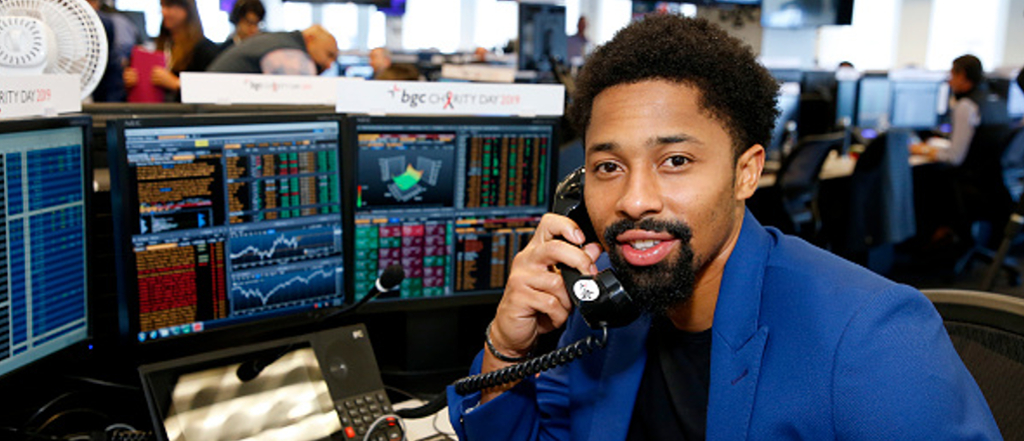Being an NBA players comes with all sorts of financial perks. Beyond the money they earn on their substantial contracts — some more lucrative than others, obviously — stars can generate revenue streams for themselves in all sorts of different ways, whether that be with signature shoe and apparel lines, product endorsements, or investments in various products and companies.
It’s common for players with large amounts of disposable income to diversify their portfolios in order to secure their long-term financial stability, but according to a recent ruling by the league, there are limits to the ways in which players can leverage their actual contracts on the stock market for certain types of transactions with investors.
On Friday, the NBA ruled that Nets guard Spencer Dinwiddie, in accordance with the guidelines spelled out in the current collective bargaining agreement, will not be permitted to use his contract as a “digital investment vehicle.”
Via Marc Stein of The New York Times:
Dinwiddie had announced earlier this week to The Athletic that he planned to go public with an “$SD8” token offered by his company DREAM Fan Shares that would enable investors to essentially buy into Dinwiddie’s three-year, $34.4 million N.B.A. contract.
By selling shares in his contract, Dinwiddie would have allowed investors to bet on whether he would be able to play well enough to earn an even more lucrative contract after the second year of his deal.
The N.B.A. issued the following statement to <em>The New York Times</em> on Friday: “According to recent reports, Spencer Dinwiddie intends to sell investors a ‘tokenized security’ that will be backed by his player contract. The described arrangement is prohibited by the C.B.A., which provides that ‘no player shall assign or otherwise transfer to any third party his right to receive compensation from the team under his uniform player contract.’ ”
Dinwiddie’s plan was to essentially allow investors to buy shares of his contract, at a minimum of $150,000 apiece, earning percentage points, in theory, on his future contract if he is able to play well enough to earn a larger payday on his next deal.
In other words, fans could literally invest in him as a player to reap the benefits as he increases his earning potential. Dinwiddie, for his part, reportedly plans on meeting with the league to make his case.
Reached tonight by @NYTSports, Brooklyn’s @SDinwiddie_25 said he plans to meet with league officials to explain the concept further to try to change their minds on today’s ruling
— Marc Stein (@TheSteinLine) September 27, 2019
Said Dinwiddie: “When I was on the phone with the league, I told them it wasn’t an assignment. And they invited me to sit down with them and explain the offering, which is what I’m going to do.”
— Marc Stein (@TheSteinLine) September 27, 2019
This raises some ethical questions about how the league can control what a player does with his money, and it’s certainly a topic we haven’t the last about as players become increasingly savvy about how to manage their money in the digital age. As such, we’ll keep an eye on how this all plays out once he speaks to the league.







